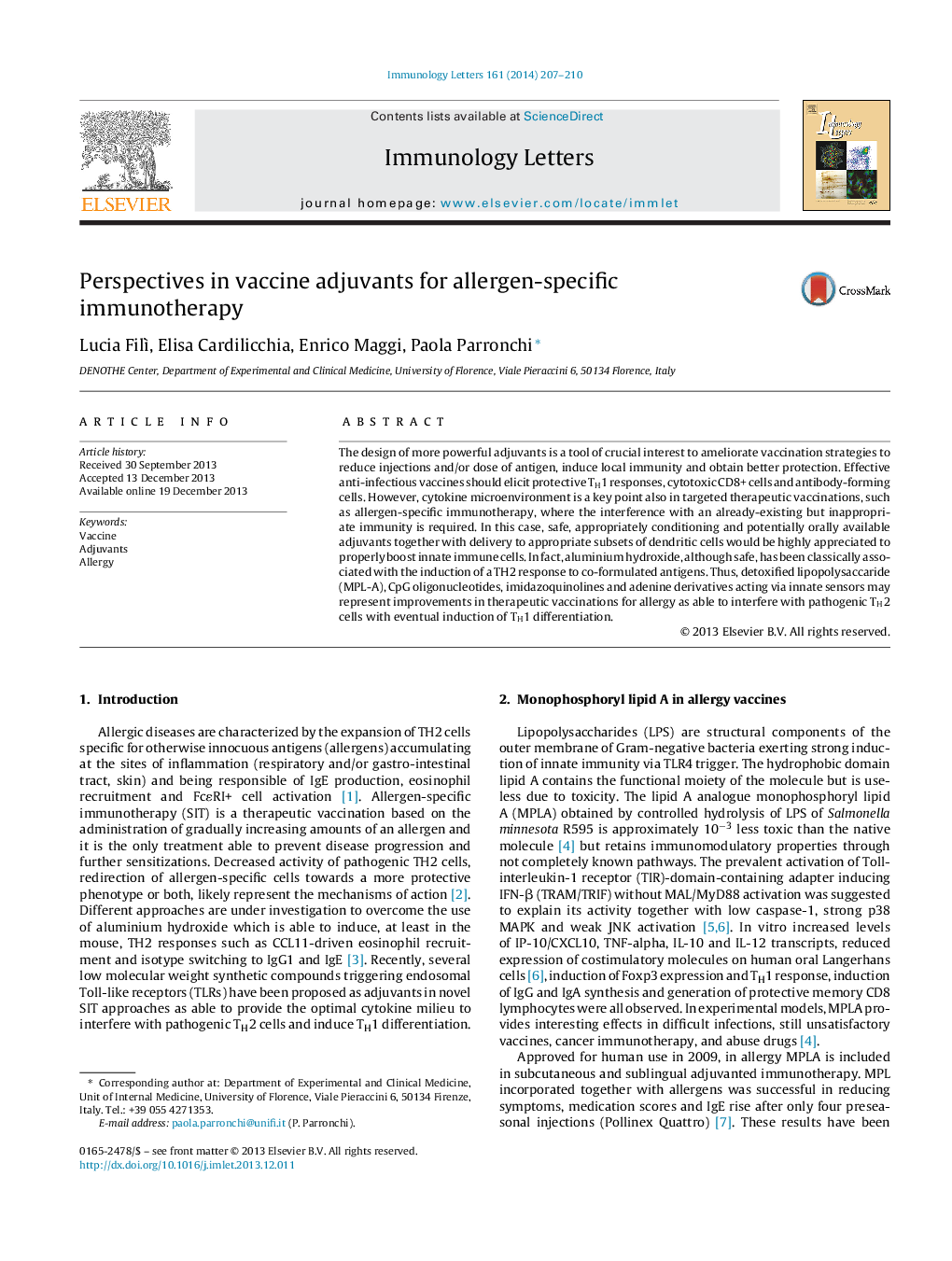| کد مقاله | کد نشریه | سال انتشار | مقاله انگلیسی | نسخه تمام متن |
|---|---|---|---|---|
| 3355397 | 1217175 | 2014 | 4 صفحه PDF | دانلود رایگان |
• Design of new adjuvants is of crucial interest to ameliorate vaccination strategies.
• Adjuvants have to properly boost innate immune cells.
• Novel SIT approaches are designed to provide optimal cytokine microenvironment.
• Adjuvants targeting innate sensors could interfere with pathogenic TH2 cells.
The design of more powerful adjuvants is a tool of crucial interest to ameliorate vaccination strategies to reduce injections and/or dose of antigen, induce local immunity and obtain better protection. Effective anti-infectious vaccines should elicit protective TH1 responses, cytotoxic CD8+ cells and antibody-forming cells. However, cytokine microenvironment is a key point also in targeted therapeutic vaccinations, such as allergen-specific immunotherapy, where the interference with an already-existing but inappropriate immunity is required. In this case, safe, appropriately conditioning and potentially orally available adjuvants together with delivery to appropriate subsets of dendritic cells would be highly appreciated to properly boost innate immune cells. In fact, aluminium hydroxide, although safe, has been classically associated with the induction of a TH2 response to co-formulated antigens. Thus, detoxified lipopolysaccaride (MPL-A), CpG oligonucleotides, imidazoquinolines and adenine derivatives acting via innate sensors may represent improvements in therapeutic vaccinations for allergy as able to interfere with pathogenic TH2 cells with eventual induction of TH1 differentiation.
Journal: Immunology Letters - Volume 161, Issue 2, October 2014, Pages 207–210
